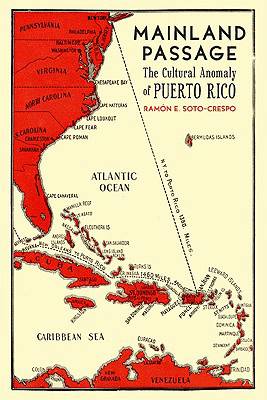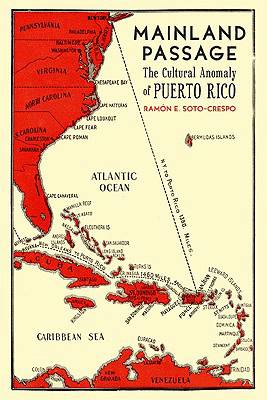
- Afhalen na 1 uur in een winkel met voorraad
- Gratis thuislevering in België vanaf € 30
- Ruim aanbod met 7 miljoen producten
- Afhalen na 1 uur in een winkel met voorraad
- Gratis thuislevering in België vanaf € 30
- Ruim aanbod met 7 miljoen producten
Zoeken
€ 27,95
+ 55 punten
Omschrijving
Disputes conventional thinking about the political status of Puerto Rico
One-third of the population of Puerto Rico moved to New York City during the mid-twentieth century. Since this massive migration, Puerto Rican literature and culture have grappled with an essential change in self-perception. Mainland Passage examines the history of that transformation, the political struggle over its representation, and the ways it has been imagined in Puerto Rico and in the work of Latina/o fiction writers.
Ramón E. Soto-Crespo argues that the most significant consequence of this migration is the creation of a cultural and political borderland state. He intervenes in the Puerto Rico status debate to show that the two most discussed options--Puerto Rico's becoming either a fully federated state of the United States or an independent nation--represent false alternatives, and he forcefully reasons that Puerto Rico should be recognized as an anomalous political entity that does not conform to categories of political belonging. Investigating a fundamental shift in the way Puerto Rican writers, politicians, and scholars have imagined their cultural identity, Mainland Passage demonstrates that Puerto Rico's commonwealth status exemplifies a counterhegemonic logic and introduces a vital new approach to understanding Puerto Rican culture and history.Specificaties
Betrokkenen
- Auteur(s):
- Uitgeverij:
Inhoud
- Aantal bladzijden:
- 200
- Taal:
- Engels
Eigenschappen
- Productcode (EAN):
- 9780816655885
- Verschijningsdatum:
- 1/08/2009
- Uitvoering:
- Paperback
- Formaat:
- Trade paperback (VS)
- Afmetingen:
- 150 mm x 226 mm
- Gewicht:
- 317 g

Alleen bij Standaard Boekhandel
+ 55 punten op je klantenkaart van Standaard Boekhandel
Beoordelingen
We publiceren alleen reviews die voldoen aan de voorwaarden voor reviews. Bekijk onze voorwaarden voor reviews.











